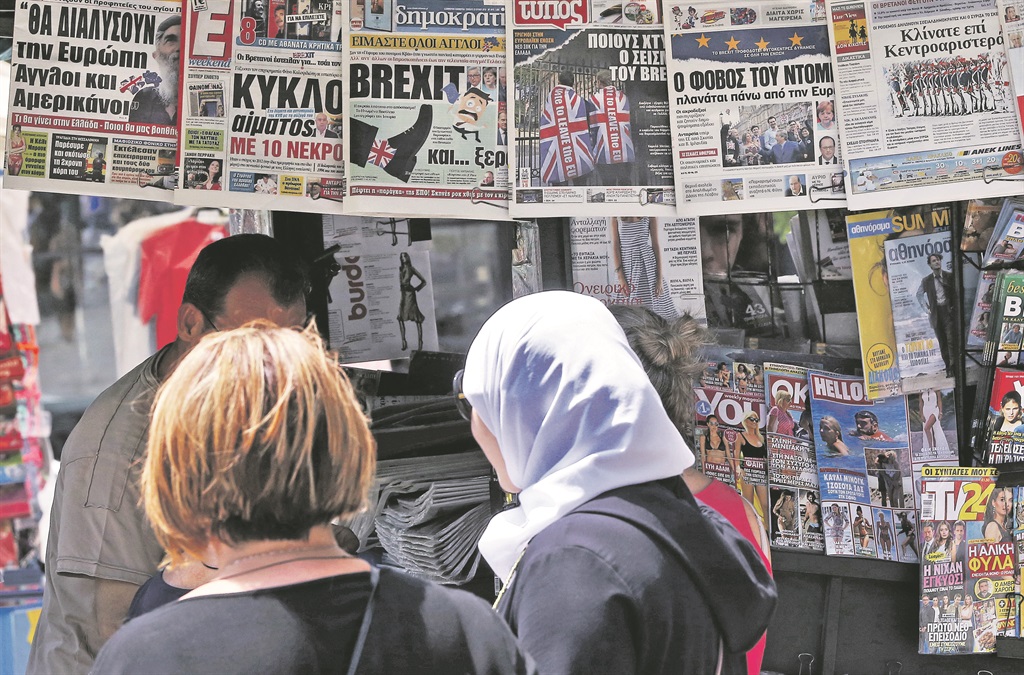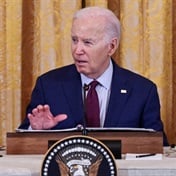
The dramatic 52%-48% decision by British voters to leave the European Union (EU) has sent shock waves throughout the world. It has sparked questions about its effect on everything from multilateral institutions and the world economy to football transfers and the future of TV show Game of Thrones.
The UK’s relationship with Europe
The process of withdrawing from Europe will take up to two years from the time the UK triggers article 50 of the Lisbon Treaty, which governs the withdrawal of a member state.
In his resignation speech, Prime Minister David Cameron said this would only be triggered in October, when the Conservative Party elects his replacement, who will then run with the ball.
Brexit campaigners, apparently shocked that their wishes have come true, also want some time to think about to do next. But angry EU leaders are having none of that. They want the UK to kick-start the process immediately to avoid a state of limbo and uncertainty in the relations between Britain and the bloc.
A flurry of meetings in coming days will determine whether the UK is granted that three-month breather or Europe tells the Brits to begin making the bed they said they wanted to lie in.
A united Britain
One of the most far-reaching consequences of the ‘leave’ vote – which did not receive much attention during the campaign – is the future of the three-century-old United Kingdom.
A trump card of last year’s anti-Scottish independence campaign was convincing voters that remaining part of a bigger UK gave Scotland more clout and benefits within the EU arrangement.
Scots wanting to continue benefiting from EU membership in areas such as free movement and business relationships voted 62% in favour of staying inside the EU in Thursday’s referendum.
In Wales, 52.5% voted to leave, while in Northern Ireland, 55.8% voted in favour of staying in the EU.
The numerically superior and increasingly nationalistic English tilted the balance with their 53% leave vote.
Immediately after the vote, Scotland’s First Minister Nicola Sturgeon, one of the leaders of the independence movement, indicated that Scotland may seek a second referendum on delinking from the UK. Her Cabinet later announced that in the interim, it would enter into talks with EU members and Brussels institutions, with a view to protecting Scotland’s place in the bloc.
The prospects of a breakup were enhanced by Northern Ireland’s Sinn Fein calling for a referendum on reunification with Ireland. This will be heavily resisted by the majority pro-British Democratic Unionist Party, the only party to have campaigned to leave.
There are also fears that agitation for Irish reunification will revive pre-1998 tensions in the former conflict zone.
Although the Scots are a minority of the British population, its oil and gas reserves are strategic for economic growth and reducing reliance on foreign fuel sources.
The EU
Jingoistic Britain was always a reluctant joiner, and throughout the construction of the EU’s institutions, it has been a difficult partner.
But, once inside, the country became an anchor power together with Germany and France. This partnership was key in dealing with intra-European problems, whether political, economic or security-based. It provided heft when negotiating with powers such as the US, Russia and China and striking deals with other organisations from other continents.
The EU also worked as a bloc when it came to contests at the UN or institutions such as the World Bank and the International Monetary Fund. Losing its second-largest economy and Europe’s strongest military power cuts a big hole in the EU’s political influence.
British politics
As the main face of the Conservative Party’s leave campaign wing, former London mayor Boris Johnson was always going to be the beneficiary of a leave vote. So when Cameron announced his resignation after his camp lost, the prospect of a Prime Minister Johnson in Downing Street by October seemed a fait accompli.
However, within hours, it emerged that powerful lobbies with the Tories were already plotting to block the ascension of a man who – although smart and charismatic – is viewed as obnoxious, self-centred and opportunistic.
Alternative candidates are now being lined up to challenge him, setting the stage for a divisive few months in Britain’s governing party, which has already been torn apart by the heated Brexit campaign.
On the Labour side, leader Jeremy Corbyn is being blamed for remain’s loss because, as a senior MP told The Independent, “our main striker often wasn’t on the pitch, and when he was, he failed to put the ball into the net”. This after voters in traditional Labour blue-collar strongholds went against the party in the referendum.
So instead of capitalising on the turmoil among the Tories, key Labour leaders are trying to suppress the revolt against Corbyn, who is highly popular with the party rank and file.
Prancing about are groupings such as Nigel Farage’s UK Independence Party and the struggling far-right British National Party, which have had life breathed into them by the isolationist sentiment.
The result has left the mainstream of the Tories and Labour – particularly in England – worried about how they could have been so out of touch with the feelings of their voters, who elected them just a year ago.
Sport
The major sporting codes such as football, rugby and cricket have raised concerns about Brexit’s effect on them. Advantageous work permits have allowed player traffic into Britain, and British players into other parts of the continent.
Hardest hit will be English Premiership clubs. Currently, the rule that a player signed by an English Premier League (EPL) club must have earned a certain number of national caps in the previous two years is waived for those from EU countries who are regarded by the local league as home-grown.
This could mean future signings – for example, of players such as Dimitri Payet, who signed for West Ham before he became a first-team regular for France – would be in jeopardy.
It would also hit the development academies of English clubs, because international football governing body Fifa’s rules strictly regulate the signing of players younger than 18. EU membership has allowed EPL to use the home-grown rule to import talented teenagers from Europe.
The world’s most competitive and wealthiest league would be much the poorer for it.
Film
The bustling British film industry was also holding its breath as the counting took place. This is because of the vast amount of money that the EU ploughs into the development of cinema in member states, as well as subsidies for economies in depressed parts of the EU. This incentive was conceived as a developmental tool and a way to offset Hollywood’s invasion of European culture.
Now the industry stands to lose millions of pounds in support and, industry players say, compel production houses to shoot movies where it makes better financial sense.
There was a big scare in the UK that the hit show Game of Thrones would be lost to Northern Ireland, where it is partly shot.
The EU contributed generous funding in the initial seasons, but US cable network HBO quickly reassured everyone that it was no longer accessing this funding anyway and shooting would continue in Northern Ireland.
There are also fears that British movies will find it harder than before to make it into European cinemas, where they have been exempt from foreign quota ceilings. Co-productions with film studios in EU member-states will be complicated by bureaucratic hurdles.
The developing world
With the withdrawal by Britain of its contribution to the EU purse – about 10% of the total budget – aid to developing nations will have to be significantly reduced. Trade agreements that the EU has negotiated with developing nations and blocs will also have to be revisited and negotiated anew. It is still a long way, but the work to offset the negative consequences will need to begin immediately.
Africa
The entry point for the relationship between the two continents is the Africa-EU Partnership, which came into being in 2007. It covers a range of areas, from economic development to climate change to human rights. This will also have to be revisited after Brexit.
The likelihood now is that Britain will want to strengthen its relationship with Commonwealth countries on the continent, and use this body as the access point for its relationship with former colonies.
South Africa
In its reaction, the presidency moved to reassure South Africans that because of the two-year lead, there would no immediate implications for local exports into the UK and that existing “rights and obligations under the existing EU treaties will continue to apply during this period”.
It would use this period to examine affected treaties and explore options. Finance Minister Pravin Gordhan agreed, saying there was a two-year period to ascertain and act on changes that needed to be made to treaties. But the markets thought otherwise, reacting strongly to the results. The immediate effect on South Africa is going to result from the uncertainty of the next two years, which adds an unnecessary burden on our stuttering economy.
Speaking to City Press on Friday afternoon, British High Commissioner to SA Judith Macgregor maintained that the UK’s exit from the EU would not immediately affect any trade agreements or movement between the two countries as “the process of our withdrawal from the EU will take place over a long time”.
“So, in the short ... and immediate term, effectively all that it means for trade agreements between South Africa and the UK is that it will continue. We have a very active trade and investment agenda and, obviously, we have just recently all signed the European Partnership Agreement, so the positions under the existing treaty will continue.”




 Publications
Publications
 Partners
Partners








